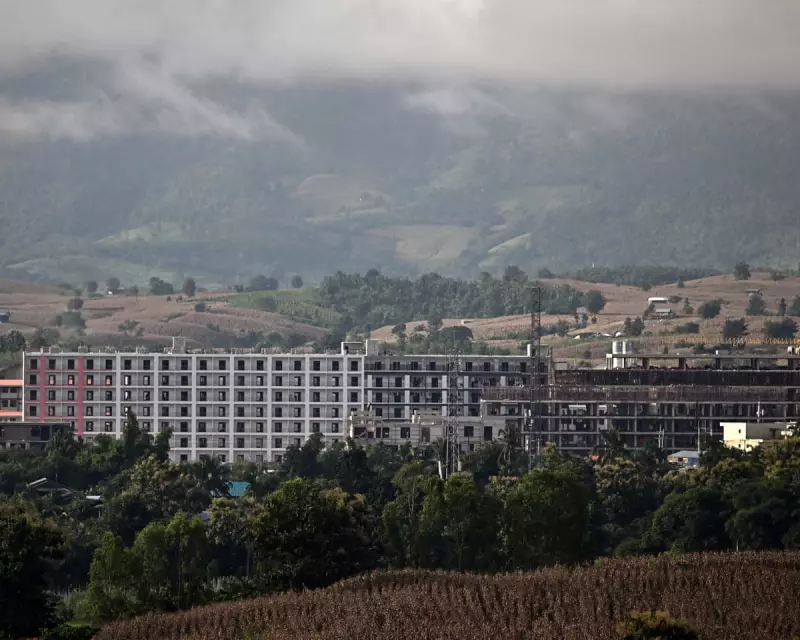
In a landmark operation that has sent shockwaves through Southeast Asia's criminal underworld, authorities have launched a massive raid on the notorious KK Park compound in Myanmar, exposing a sophisticated cybercrime empire built on human misery.
The Digital Prison Uncovered
The sprawling complex, located in Myanmar's lawless border regions, served as both a prison and a factory for cybercrime. Thousands of victims, many trafficked from across Asia, were forced to work in brutal conditions running elaborate online scams targeting people worldwide.
Eyewitness accounts describe a dystopian reality where workers faced constant surveillance, violent punishment, and the terrifying prospect of being sold to other criminal syndicates if they failed to meet daily scam quotas.
Anatomy of a Scam Operation
The criminal enterprise operated with chilling efficiency:
- Romance scams targeting vulnerable individuals through dating apps
- Cryptocurrency and investment frauds promising unrealistic returns
- Phishing operations harvesting sensitive financial information
- Impersonation scams using sophisticated social engineering techniques
International Cooperation Breaks the Chain
The successful raid represents a rare moment of cross-border collaboration in a region where jurisdictional complexities often hamper law enforcement efforts. Intelligence sharing between multiple countries provided the breakthrough needed to target this criminal hub.
"This isn't just about arresting criminals," explained one regional security analyst. "It's about dismantling an entire ecosystem of exploitation that has flourished in the grey zones between national jurisdictions."
The Human Cost Behind the Scams
Behind the sophisticated technology and financial fraud lies a deeply human tragedy. Many victims were lured by promises of legitimate employment, only to find themselves trapped in what survivors describe as "digital slavery." Their passports were confiscated, movement restricted, and communication with the outside world severely limited.
The conditions inside these compounds have drawn comparisons to historical human rights atrocities, with workers describing systematic abuse, inadequate medical care, and psychological torment designed to break their will.
A Growing Regional Crisis
KK Park represents just one node in a rapidly expanding network of scam compounds across Southeast Asia. Similar operations have been identified in Cambodia, Laos, and the Philippines, creating a multi-billion dollar criminal industry that preys on both its workforce and scam victims.
Regional governments now face mounting pressure to address this crisis comprehensively, balancing law enforcement action with victim protection and prevention measures.
The raid on KK Park marks a significant victory, but experts warn that without sustained international pressure and improved regional cooperation, these criminal enterprises will simply relocate and adapt.





